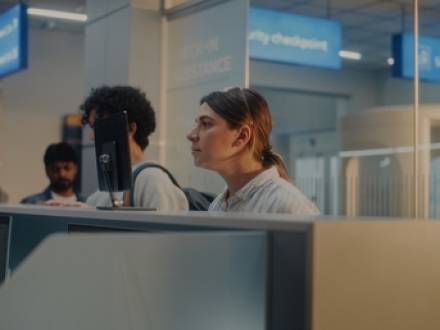Can I Choose Not to Have My Face Scanned by TSA at the Airport?
 Privacy is a growing concern for many people in the United States and throughout the world. People’s personal data is captured in many ways, and it is often traded and sold by "data brokers." This data may include facial scans that may then be used to identify people through facial recognition technology. Privacy advocates have noted the problems with these systems, and people will need to understand their rights when they are asked to submit to facial scans.
Privacy is a growing concern for many people in the United States and throughout the world. People’s personal data is captured in many ways, and it is often traded and sold by "data brokers." This data may include facial scans that may then be used to identify people through facial recognition technology. Privacy advocates have noted the problems with these systems, and people will need to understand their rights when they are asked to submit to facial scans.
In some cases, facial scans may seem to provide convenience, such as when travelers at airports are asked to submit to scans by TSA agents, who will then compare the scans with people’s ID photos. However, the data captured in these scans could be included in databases used by law enforcement, which could lead to criminal charges when police officers perform facial recognition searches. Because this technology is unreliable, it is often best to avoid providing law enforcement with data that could be accessed during an investigation.
The legal issues surrounding facial recognition technology and searches performed by law enforcement are complex. Those who have been investigated, arrested, or charged with crimes based on facial recognition searches will need to make sure they have legal representation from a Hartford, CT criminal defense attorney who understands the best ways to address these concerns.
Problems With TSA Facial Scans
People traveling through airports in the United States may be asked to have their faces scanned at TSA checkpoints. This technology is currently being used in more than 80 airports, and TSA plans to expand its use to more than 400 airports within the next few years. TSA has stated that the scans are used to verify a person’s identity by comparing the captured image with the picture on their identification documents. It also claims that the scans are not saved after making a positive ID match, except for testing purposes.
Compliance with TSA facial scans is voluntary, and travelers are allowed to opt out of this type of screening. However, people may not always understand that this is an option. According to a study performed by the Algorithmic Justice League (AJL), 99 percent of people were not verbally informed by TSA agents that facial scans were voluntary. While the TSA has posted signs stating that facial scans are not mandatory and informing people about how it uses facial recognition technology, 56 percent of people did not notice these signs.
The TSA has also stated that there is no penalty for declining facial scans and that using alternative identity verification methods will not take longer or cause people to lose their place in line. However, the AJL study found that 67 percent of people who opted out of facial scans experienced pressure from TSA agents to comply, verbal abuse, public shaming, or higher levels of scrutiny.
Even though the TSA claims that it does not save and store data from facial scans, people may be concerned that this information could be kept in a database and shared with other law enforcement organizations. This could lead to investigations or criminal charges when police officers search through these databases to identify suspects. Facial recognition technology is notoriously unreliable, especially when identifying minorities such as African Americans and Asian Americans. False positives may lead to arrests and criminal charges for people who were uninvolved with the crimes being investigated.
Contact Our Hartford Criminal Defense Lawyers
At Woolf & Ross Law Firm, LLC, we understand the concerns that many people have about facial recognition technology and other uses of personal data. For those who are facing criminal charges, we can help address the evidence involved in a case, question the use of improper or illegal searches by law enforcement, and work to prevent criminal convictions. For legal help with these matters, contact our Connecticut criminal defense attorneys at 860-290-8690 and arrange a free consultation.






